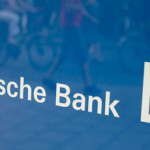European Banks’ Reciprocity Draws Scrutiny

When Deutsche Bank AG hired 25 banks last summer to help it raise about $9 billion of new capital, it made some unusual selections. In addition to a handful of Wall Street stalwarts, three Italian banks made the cut. Japan’s Nomura Holdings Inc. was on the list. So was a large Austrian bank.
Deutsche Bank selected the roster of banks partly based on their size and skills. But the assignments, which generated a total of about €119 million ($133.24 million) in fees, were also designed to reward some banks for handing past business to Deutsche Bank, and to coax others to do the same, according to bankers involved in the process.
Behind the scenes in Europe, banks regularly dole out lucrative work to their competitors, partly based on how much business they will receive in return. The practice, known as reciprocity, is emblematic of the industry’s clubby, tightknit nature, bankers say.
In the U.K., the Financial Conduct Authority in February launched an investigation into competition in investment banking. Reciprocity is one of the practices on the regulator’s radar because of its potential to be anticompetitive, although the agency hasn’t yet decided on the precise scope of its investigation, according to a person familiar with the regulator.
“I was very surprised that this existed,” said Douglas Ferrans, the former chairman of the Investment Management Association, a U.K. trade group of money managers, who has studied the ballooning number of investment banks hired for routine underwriting assignments. “In all my years as an investment manager, I believed banks pitched for underwriting business and it was won on price and ability to execute. What I discovered was some form of cartel operating.” Mr. Ferrans conducted the study while at the IMA on behalf of the Institutional Investor Council based partly on interviews of industry practitioners.
Mr. Ferrans says the practice inflates the number of banks working on deals and therefore hurts shareholders of the company that is paying the banks’ fees. Other critics say it introduces the possibility of price-fixing and entrenches the power of giant European banks, which have plenty of assignments to hand out, compared with midsize investment banks that have less reciprocal business to dangle.
“This is anticompetitive to say the least,” said Emilios Avgouleas, a professor of banking at the University of Edinburgh’s law school. He said regulators should investigate whether the practice amounts to collusion.
Many investment banks say there is nothing wrong with reciprocity. They say it is a legitimate way to push customers to give them more business and that nobody loses. They also say that the practice rarely involves explicit quid pro quos.
There are no U.S. or European laws that specifically outlaw the practice of reciprocity, lawyers and bankers say. But legal or regulatory problems could arise if the practice is deemed to violate rules around anticompetitive behavior and collusion, said Mr. Avgouleas.
The phenomenon works in a variety of ways. In one prevalent form, a bank picks a rival to work on its own stock or bond offerings, in exchange for that rival hiring it for a similar job. “There is an understanding that if you bring a bank to your deal, they will bring you to their deal,” said the head of a large European bank’s investment-banking unit.
Reciprocity also comes into play as banks jostle for roles working for corporate clients. The banks picked to lead corporate stock or bond offerings, or to assemble loans from several banks, often have latitude to assign other banks to play supporting roles in the deals. Those assignments are often handed out on the basis of reciprocal business, bankers say.
In another variety, Dutch bank ING Groep NV last year was preparing to spin off its insurance unit, NN Group , in a public stock offering. First, though, the bank wanted to arrange a €1 billion credit line for NN Group. It told rival banks that it would reward those that lent money with a role in the planned IPO, according to bankers involved in the pitch. The revolving credit line was signed in April with a dozen banks, according to Dealogic. All but one ended up on NN Group’s IPO a few months later.
While it isn’t uncommon for banks to dangle loans to win more lucrative business from clients, bankers say it is rarer for one deal to be so clearly conditional on another.
An ING spokesman said it selects banks based mainly on their ability to complete transactions and that other factors like relationships with the banks “are a secondary criteria.”
Banks engage in frenzied competition to win assignments from each other. Deals can be worth millions of dollars in fees.
At big financial gatherings, such as the annual International Monetary Fund meetings in Washington, banks dispatch senior capital-markets executives to meet with each other to compare notes on which banks owe each other business, according to participants. Bankers come to the IMF meetings armed with presentations listing all the services one bank has provided to another. The meetings are “reciprocity fests,” said a senior banker who has attended.
Reciprocity is especially prevalent among European banks, although U.S. and Asian banks operating in Europe also participate. The practice isn’t nearly as widespread in the U.S., bankers say.
Bank of America Corp. executives, for example, unsuccessfully tried to get on a European bank’s bond sale by citing the fact that they had recently given that bank a large transaction-processing contract, according to a person familiar with the matter. Nomura bankers, meanwhile, have landed on deals after arguing that their distribution of European banks’ asset-management products to Japanese retail customers entitles Nomura to more stock- and bond-underwriting business, according to a person familiar with that pitch.
The tit-for-tat strategy gained popularity in 2010, when Deutsche Bank was planning a massive $14 billion share sale. It sent letters to dozens of banks inviting them to pitch for the business and asking to describe what assignments they could provide Deutsche Bank in the future if they were put on the deal, according to several bankers who saw the letter.
Deutsche Bank ended up naming 34 banks to the offering, an unusually large roster, and agreed to pay a total of €229 million in underwriting fees. Among the winners: National Bank of Greece —not a traditional go-to banker for Deutsche Bank. The same month, National Bank of Greece launched its own €2.8 billion share sale. Deutsche was one of the lead underwriters.
Deutsche Bank soon jumped up the European rankings of banks handling stock sales for other financial institutions, although its rise also reflected the bank’s investment in that business. In 2009, Deutsche Bank ranked 12th, according to Dealogic. In three of the next four years, it was the top-ranked bank, and it placed third last year.
“We are a leader in raising equity for financial institutions because of our knowledge of the markets and our relationships with issuers and investors, not because of reciprocity agreements,” a Deutsche Bank spokeswoman said.
The tactic rippled throughout the industry, as rival banks took note of Deutsche Bank’s success. But Deutsche Bank has remained a leading practitioner, bankers say.
UniCredit SpA, Italy’s largest bank, routinely relies on reciprocity as a factor in selecting banks to work on its deals, including a €7.5 billion share sale in 2012 and a €1 billion bond deal last September, according to bankers involved in the processes. In both deals, banks that had previously given UniCredit assignments won leading roles managing the offerings.
Last year, Raiffeisen Bank International AG scored a coveted spot on Deutsche Bank’s share sale, a few months after the Austrian bank had tapped Deutsche Bank to lead its own share sale. A rival bank that bid for the Raiffeisen deal was informed it wasn’t selected because it hadn’t awarded the Austrian bank a lucrative cash-management contract, according to a banker involved in the process.
A Raiffeisen spokesman said “the decisive factor” in its selection of banks for its share sale “is the success of the transaction. Reciprocity plays a subordinate role.”
Source: wsj – European Banks’ Reciprocity Draws Scrutiny





























